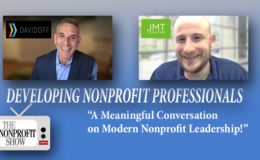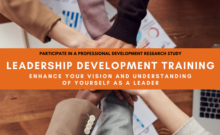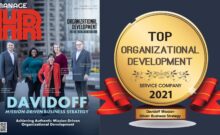Self-confrontation.
That’s how New York Times opinion writer David Brooks, in his most recent book The Road to Character, describes the process people with true humility go through routinely.
It’s something all of us, especially those in leadership roles, can benefit from keeping in mind. A failure to continually reflect on our strengths, our failures, and lessons learned will damage culture and performance across your organization.
I recently heard Brooks speak at a conference, and I was motivated to apply his humility perspective to Davidoff Strategy’s Mission-Driver coaching, consulting and training. For example, Mission-Drivers lead themselves and others through a rigorous focus on self-assessment and organizational vision, mission, and principles. Even just assessing yourself and your organization is a test of your humility and willingness to accept and integrate challenging feedback on your gaps and areas of development.
So Mission-Drivers need to be willing to self-confront. To borrow Brooks’ phrasing: “They are more likely to assume that we are all deeply divided selves, both splendidly endowed and deeply flawed—that we each have certain talents but also certain weaknesses.”
That’s a far cry from narcissistic, ego-driven leaders who believe they can do no wrong. If something goes wrong in their organizations, they blame others. Not surprisingly, such blaming typically becomes part of the organizational culture, eroding morale, destroying trust, and damaging performance.
Mission-Drivers, in contrast, are very willing to acknowledge their weaknesses. They recognize they may not be ideal communicators of vision or managers of project details, for example. But they go beyond just acknowledging weak areas to doing something about them. They “magnify what is best and defeat what is worst,” as Brooks writes. In this context, what do you see as your strengths and shortcomings?
That’s the ultimate goal of self-confrontation, after all: to gain self-awareness but also effectiveness in working with others and helping them reach higher. Such behavior also gets transmitted throughout the organization, creating an environment of continuous improvement, open communication, and other performance-enhancing elements.
Finally, the truly humble and Mission-Driven are willing to ask for help. “Everybody needs redemptive assistance from outside—from family, friends, ancestors, rules, traditions, institutions, exemplars, and for believers, God,” Brooks writes.
Strong people know where they have weaknesses. They recognize that they can’t do it all themselves, and seek the right resources to fill the gaps. The true Mission-Driver reflects the opposite of “doing life alone.” Mission-Drivers embrace working on teams and know they are only as good as their team. In what areas might you ask for help?
Reading Brooks has reaffirmed my commitment to continuous self-confrontation and to keep developing the most genuine and authentic me I can offer my family, my business, my clients, and my community. I hope we can be on this journey together.
To begin your self-confrontation journey, check out our Mission-Driven vs. Mission-Challenged Organizational Assessment. In just 10 questions you will have a clear understanding of where your organization stands.




